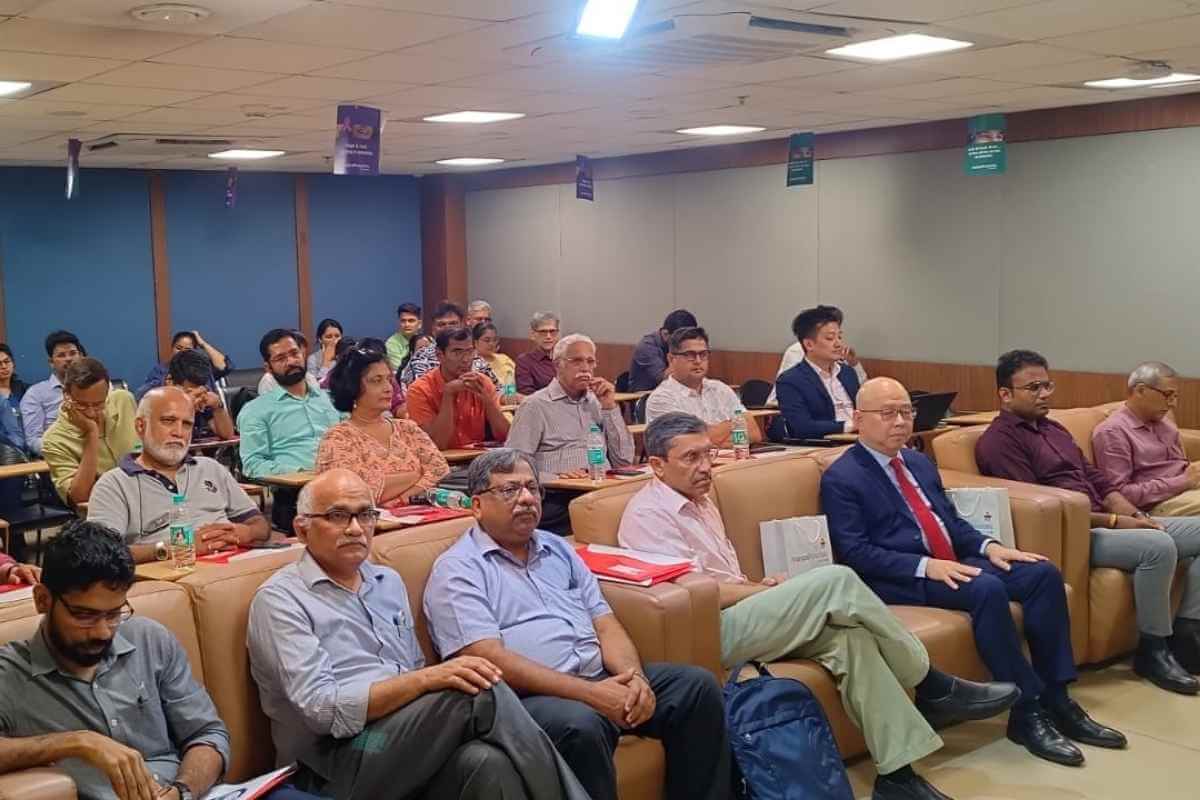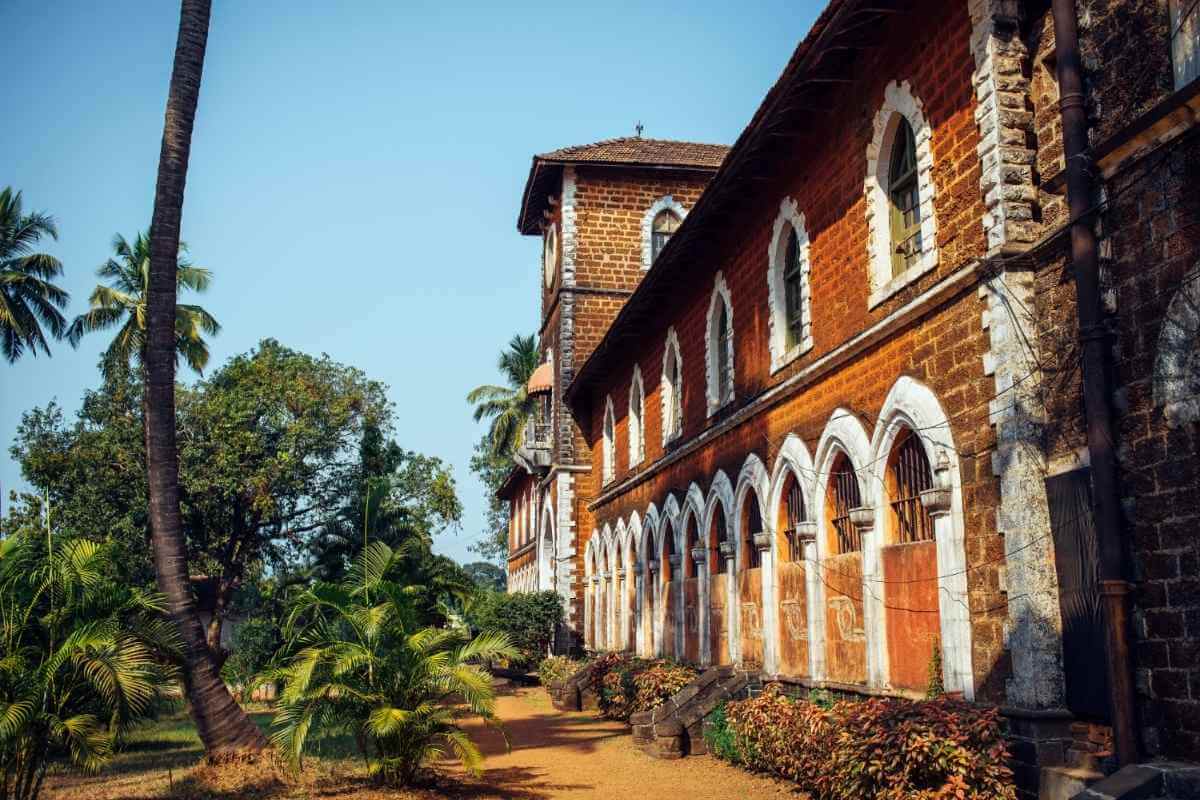The concept of ‘Adopt a Heritage’ was introduced by the central government to involve private and public firms with archaeological maintenance capabilities to take over heritage sites all over India. The purpose is to revive, maintain and develop tourism amenities and promote them as heritage tourism. To resolve the issue of maintaining such grand monuments, the government introduced the ‘Adopt a Heritage’ project. The official website mentions that the project plans to entrust heritage sites, monuments and other tourist sites to private sector companies, public sector companies and individuals for the development of tourist amenities. They would become ‘Monument Mitras’ and adopt the sites. The government scheme has already registered nearly 400 such participants. They would be responsible for operations and maintenance of not just the monuments but the amenities too.
The project has reached the state of Goa and is creating panic, confusion and misunderstanding regarding the concept and implementation. The project will allow corporates to adopt at least three major heritage sites in Goa. These include – The Basilica of Bom Jesus, the cluster of Old Goa’s remaining churches and even the old jailhouse at Aguada. But the Minister for Archives and Archaeology, Vijai Sardesai and Minister of Tourism Manohar Azgaonkar are sceptical and mentioned that they were not informed about this initiative by the centre. They claim that the state government was unaware that apart from the 3 mentioned sites, Fort Aguada, Cabo de Rama, Chapora Forts, and ecologically sensitive Morjim beach were also up for grabs. Now, there’s a fierce backtracking being done.

The Pros and Cons of the Initiative
Every story has two aspects. There could be a negative or a positive outcome of this initiative. It is only a matter of time when citizens will know whether ‘Adopt a Heritage’ will be for the better or for worse. Meanwhile, we discuss the pros and cons of giving up our century-old heritage into the hands of million dollar firms to resurrect them and bring them to life.
The Cons
A similar initiative was conducted earlier by the union government where a heritage monument was taken over or leased out to large corporate groups for its upkeep. There is a long list of heritage structures that were converted into hotels, museums and adapted for various uses – they became revenue generators for them. The fact that has ignited this debate is why the government is unable to fund the maintenance of these heritage sites and has taken a drastic measure such as leasing out or rather ‘auctioning’ (the word that is in use in this regard) the monument to private firms. Another point of worry is that nowhere does the new scheme mentions maintaining a stringent check on the selection of the bidder. What is worse, in Goa’s case, is that the two highly dubious partners are shortlisted as ‘Monument Mitras’ for the five proposed sites. This concern is an outcome of previous experiences by the state. In Goa, there are a few examples of heritage sites resurrection that turned bad — the Tiracol Fort and a riverfront property in Panaji granted on a long-term private lease. Today the visitors are devoid of entry into both these places for reasons unknown.
According to the Union ministry, Drishti Lifesaving Pvt. Ltd has expressed an interest in adopting the Old Goa churches. However, it’s not clear how many churches are included in the proposed sites. The Old Goa cluster of churches and Aguada jail have been listed for adoption in phase II, while the Bom Jesu Church will be taken up in phase III.

The Pros
Private parties, styled as ‘Monument Mitras’, are expected to adopt listed heritage monuments to upgrade basic amenities to international standards at the site. The project will primarily focus on building and maintaining amenities and facilities such as drinking water, lavatories, cleanliness, signage, surveillance, accessibility, ticketing, illumination and even museums and an interpretation centre. The intention is to make it a good experience for the tourists, as stated by archaeologist and former regional director (north) ASI, K. K. Muhammed said. Goa does have models of private players contributing to the conservation of ruined monuments. The restoration of the Reis Magos Fort was through Lady Helen Hamlyn Trust, and now a committee of civil society members is maintaining it.
In fact, Travel and Tourism Association of Goa (TTAG) has welcomed the Centre’s move to permit the adoption of five Goan monuments under the ‘Adopt a Heritage’ scheme. They have emphasised the fact that the project will ensure full access to the citizens of these historical sites. Although the chosen firm will not target any revenue benefits from this initiative, the scheme can become part of their CSR initiative, and in return, they will be acknowledged within the monument premises as well as on the ‘Incredible India’ website.
There are examples of some successful resurrection of the heritage sites and palaces like the Oberoi Villas of Udaipur, the Lake Palace of Udaipur, the City Palace of Jaipur, Mysore Palace, Neemrana Forts, and the Taj Mahal in Agra, to name a few. It is a collaborative effort between the Ministry of Tourism, Ministry of Culture and Archaeological Survey of India (ASI), and State/UTs governments to maintain and revive these heritage treasures.

The Politicization of the Initiative
The state government of Goa has expressed concerns over the decision by the union ministry on this project. Minister for Archives and Archaeology, Vijai Sardesai, shared that the experience has shown that proposals implemented by the centre often have broader implications than stated in the initial scheme of plans. He also said that the central government would come with a small thing and then take over the entire asset. For the state, the entire Old Goa sites are an asset. Furthermore, he shared that Basilica is a monument of religious importance and also houses the relics of St. Francis Xavier, which makes it a delicate matter.
Mr. Sardesai mentioned that he would conduct a meeting of concerned members over this issue with ASI to get clarity on the situation. The members will include Minister of Tourism, the local MLA, parish priest of the cathedral, rector of Bom Jesus Basilica, bishop of the diocese and the chief secretary and himself (Minister for Archaeology).
The talks are doing the rounds that few of the social activist along with political leaders, priests and the Archbishop are trying to create malignancy amongst the citizens by giving it a political angle. They are trying to make this initiative a religious matter, pointing fingers at the ruling party, BJP which is a dominant Hindu party, who are trying to infringe onto the heritage sites of Christian origin. They are also blaming them for misleading, making the ‘adopt a heritage’ scheme as a cover-up for their profound political intentions. The priest and the archbishop are upset as no one from the government had taken their consent over this subject.
The monuments that are mentioned under the scheme are heritage legacy handed over by our ancestors to the people and government of India. They are not a private property of any political party or any religious sect. The unnecessary politicisation of this initiative is not required. It is the responsibility of the government and the people to respect and care for these heritage treasure.

Many debates are doing the rounds on whether the centre’s decision on implementing this initiative has dire consequences. We could either entirely loose or win our heritage treasure. Regardless of this, it is the government’s duty to maintain its national treasures. Roping in private companies and corporates specialised services for heritage site maintenance may be acceptable, but placing an entire monument into the hands of a corporate entity is still questionable. The collective goal of the government and the tourism department is to develop the tourism sector in India, sustainably and responsibly. The policies and actions must aim to strengthen the benefits and reduce the costs of tourism. The government has to ensure that such a move does not lead to any fatal results like privatisation of the monument for personal gain, and devoiding citizens off their rights to explore them.

























